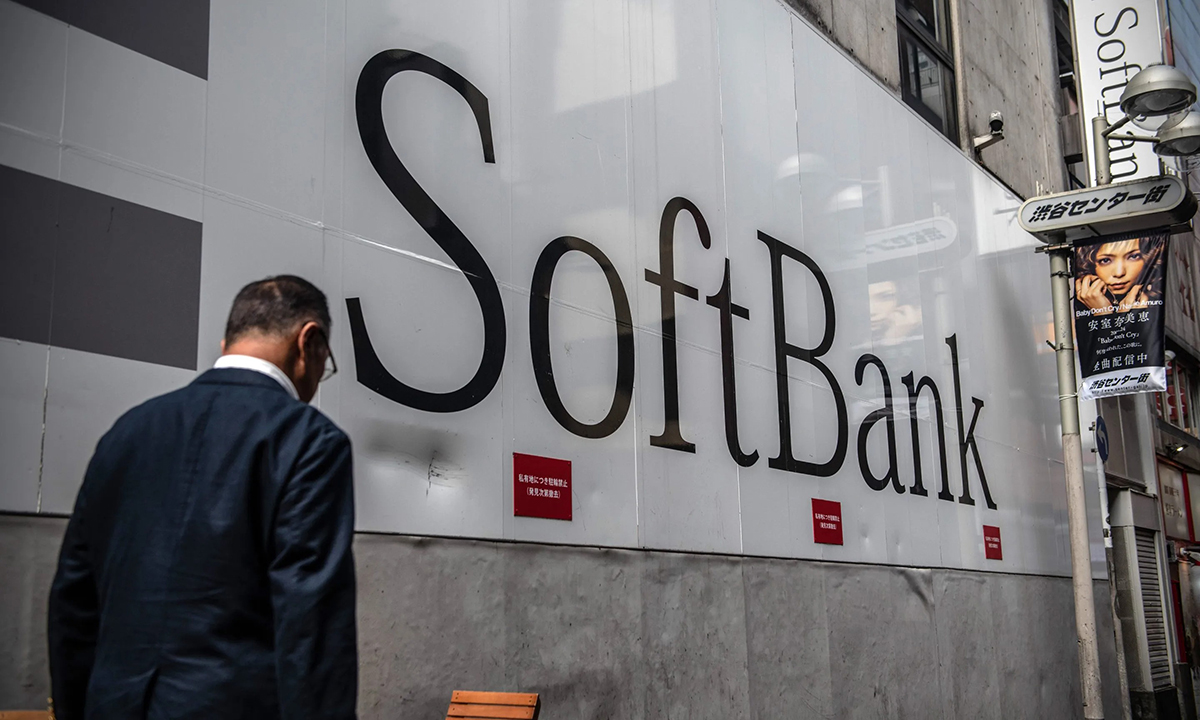
過去幾個月,初創(chuàng)界因為經(jīng)濟的不確定性受到嚴重沖擊,。軟銀(SoftBank)遭遇前所未有的虧損,,之后表示將啟動裁員,并從部分最知名的投資中撤出,。紅杉資本(Sequoia capital)和Y Combinator等業(yè)內(nèi)領(lǐng)先的風投公司也發(fā)出殘酷警告,,告知創(chuàng)業(yè)者要為嚴重的市場低迷做好準備。這些罕見的公開聲明預(yù)示著凜冬將至:隨著風投資金枯竭,,許多初創(chuàng)公司將難以為繼,。
在我的職業(yè)生涯中,我曾先后創(chuàng)建并帶領(lǐng)四家創(chuàng)業(yè)公司成功退出,,我也見證過市場低迷會以多么快的速度重塑創(chuàng)業(yè)公司的格局,。我們知道初創(chuàng)公司在未來幾個月將經(jīng)歷何種痛苦,但那些剛剛開始創(chuàng)業(yè)的人呢,?他們還有沒有希望獲得風投資金,,還是應(yīng)該選擇自力更生、不拿融資推動企業(yè)發(fā)展?
與我們這些20年前的創(chuàng)業(yè)人相比,,今天的創(chuàng)業(yè)者擁有更多白手起家的條件,。他們不再需要大量資金購買房屋或設(shè)備,只用從AWS或Azure上以超低價租用電腦,,利用晚上和周末時間創(chuàng)建公司的可行性已經(jīng)大大提升,。
“先賺錢再花錢”的傳統(tǒng)創(chuàng)業(yè)模式對今天的創(chuàng)業(yè)者來說可能是一個陌生的概念,但隨著我們進入經(jīng)濟動蕩期,,還是老辦法最可靠,。
接受現(xiàn)實
在經(jīng)濟低迷時期,創(chuàng)業(yè)者最常犯的錯誤是不能快速接受現(xiàn)實,。因為風投環(huán)境本身或許就具有誤導性:風投公司仍然會參加會議,,向創(chuàng)始人提供(通常是積極的)反饋,讓創(chuàng)始人覺得他們走對了路,。
然而,,這些對話制造的假象卻掩蓋了這個事實:風投公司短期內(nèi)并不會開出支票。創(chuàng)始人的經(jīng)歷不會發(fā)生日新月異的變化,,但籌到錢的機會已經(jīng)變成了零,。
目前,創(chuàng)始人能做的是,,找一位值得信賴的顧問,,他/她應(yīng)當曾經(jīng)幫助過初創(chuàng)公司順利度過經(jīng)濟衰退期。當行業(yè)領(lǐng)袖談?wù)摻?jīng)濟動蕩以及將如何影響融資時,,請嚴陣以待,。創(chuàng)業(yè)者越早將現(xiàn)實世界的經(jīng)濟環(huán)境因素納入公司的規(guī)劃和運營中,,等經(jīng)濟復(fù)蘇時,他們就越能夠獲得成功,。
自力更生的利與弊
在我參與創(chuàng)辦的四家初創(chuàng)公司中,,有兩家獲得了風投資金支持,另外兩家則是自力更生,,沒有外部投資,。
要知道,,如果你選擇自力更生模式,,其潛在回報是:當初創(chuàng)公司成功退出時,這筆錢會直接進入公司創(chuàng)始人的口袋,。不過,,這種模式下成功退出的道路有時會更長,也往往更具挑戰(zhàn)性,。
當一家初創(chuàng)公司得到紅杉資本或Y Combinator這樣的公司投資時,,相當于拿到了一份認證,可以在今后給公司帶來更多機會,,可能是額外的資金支持,、合作伙伴、客戶,,甚至可能是一個能做出重要貢獻的關(guān)鍵員工,。
而創(chuàng)業(yè)公司如果選擇自力更生,則游離于上述體系之外,,因此必須拿出令人信服的數(shù)據(jù)讓自己被看到,。如果數(shù)據(jù)能證明公司的增長、市場牽引力和流通速度,,你就會發(fā)現(xiàn)低迷的市場意味著不可思議的機會,。如果你能比競爭對手撐得更久,熬過最困難的時期,,那么當市場復(fù)蘇時,,你就能找到利率和條款都具有超高吸引力的新投資。
熬過低谷
創(chuàng)業(yè)環(huán)境可能在一夜之間產(chǎn)生巨變,,給今天的創(chuàng)始人和創(chuàng)業(yè)家?guī)泶驌?。就在今?月,《紐約時報》(New York Times)還在專題報道充滿泡沫的科技融資市場,。
寥寥數(shù)月,,派對已經(jīng)結(jié)束。對于今天的創(chuàng)業(yè)者而言,,無論是否選擇自力更生,,都要牢記要把自己的公司放在大環(huán)境大背景中,。
很少有公司是想出了一個點子、付諸實踐,,然后立刻取得成功,。相反,在大多數(shù)成功的創(chuàng)業(yè)公司的故事里,,是一個接一個的構(gòu)思,,直到公司最終找到成功的公式。
成功的唯一途徑是絕不放棄,,同時有意識地配置你寶貴的資本,,來最大限度地尋找成功機會。(財富中文網(wǎng))
皮特·佩查理斯是New Relic戰(zhàn)略與經(jīng)驗高級副總裁,。
《財富》網(wǎng)站上的評論文章僅代表作者個人觀點,,并不代表《財富》雜志意見。
譯者:Agatha
過去幾個月,,初創(chuàng)界因為經(jīng)濟的不確定性受到嚴重沖擊,。軟銀(SoftBank)遭遇前所未有的虧損,之后表示將啟動裁員,,并從部分最知名的投資中撤出,。紅杉資本(Sequoia capital)和Y Combinator等業(yè)內(nèi)領(lǐng)先的風投公司也發(fā)出殘酷警告,告知創(chuàng)業(yè)者要為嚴重的市場低迷做好準備,。這些罕見的公開聲明預(yù)示著凜冬將至:隨著風投資金枯竭,,許多初創(chuàng)公司將難以為繼。
在我的職業(yè)生涯中,,我曾先后創(chuàng)建并帶領(lǐng)四家創(chuàng)業(yè)公司成功退出,,我也見證過市場低迷會以多么快的速度重塑創(chuàng)業(yè)公司的格局。我們知道初創(chuàng)公司在未來幾個月將經(jīng)歷何種痛苦,,但那些剛剛開始創(chuàng)業(yè)的人呢,?他們還有沒有希望獲得風投資金,還是應(yīng)該選擇自力更生,、不拿融資推動企業(yè)發(fā)展?
與我們這些20年前的創(chuàng)業(yè)人相比,,今天的創(chuàng)業(yè)者擁有更多白手起家的條件。他們不再需要大量資金購買房屋或設(shè)備,,只用從AWS或Azure上以超低價租用電腦,,利用晚上和周末時間創(chuàng)建公司的可行性已經(jīng)大大提升。
“先賺錢再花錢”的傳統(tǒng)創(chuàng)業(yè)模式對今天的創(chuàng)業(yè)者來說可能是一個陌生的概念,,但隨著我們進入經(jīng)濟動蕩期,,還是老辦法最可靠。
接受現(xiàn)實
在經(jīng)濟低迷時期,創(chuàng)業(yè)者最常犯的錯誤是不能快速接受現(xiàn)實,。因為風投環(huán)境本身或許就具有誤導性:風投公司仍然會參加會議,,向創(chuàng)始人提供(通常是積極的)反饋,讓創(chuàng)始人覺得他們走對了路,。
然而,,這些對話制造的假象卻掩蓋了這個事實:風投公司短期內(nèi)并不會開出支票。創(chuàng)始人的經(jīng)歷不會發(fā)生日新月異的變化,,但籌到錢的機會已經(jīng)變成了零,。
目前,創(chuàng)始人能做的是,,找一位值得信賴的顧問,,他/她應(yīng)當曾經(jīng)幫助過初創(chuàng)公司順利度過經(jīng)濟衰退期。當行業(yè)領(lǐng)袖談?wù)摻?jīng)濟動蕩以及將如何影響融資時,,請嚴陣以待,。創(chuàng)業(yè)者越早將現(xiàn)實世界的經(jīng)濟環(huán)境因素納入公司的規(guī)劃和運營中,等經(jīng)濟復(fù)蘇時,,他們就越能夠獲得成功。
自力更生的利與弊
在我參與創(chuàng)辦的四家初創(chuàng)公司中,,有兩家獲得了風投資金支持,,另外兩家則是自力更生,沒有外部投資,。
要知道,,如果你選擇自力更生模式,其潛在回報是:當初創(chuàng)公司成功退出時,,這筆錢會直接進入公司創(chuàng)始人的口袋,。不過,這種模式下成功退出的道路有時會更長,,也往往更具挑戰(zhàn)性,。
當一家初創(chuàng)公司得到紅杉資本或Y Combinator這樣的公司投資時,相當于拿到了一份認證,,可以在今后給公司帶來更多機會,,可能是額外的資金支持、合作伙伴,、客戶,,甚至可能是一個能做出重要貢獻的關(guān)鍵員工。
而創(chuàng)業(yè)公司如果選擇自力更生,,則游離于上述體系之外,,因此必須拿出令人信服的數(shù)據(jù)讓自己被看到。如果數(shù)據(jù)能證明公司的增長、市場牽引力和流通速度,,你就會發(fā)現(xiàn)低迷的市場意味著不可思議的機會,。如果你能比競爭對手撐得更久,熬過最困難的時期,,那么當市場復(fù)蘇時,,你就能找到利率和條款都具有超高吸引力的新投資。
熬過低谷
創(chuàng)業(yè)環(huán)境可能在一夜之間產(chǎn)生巨變,,給今天的創(chuàng)始人和創(chuàng)業(yè)家?guī)泶驌?。就在今?月,《紐約時報》(New York Times)還在專題報道充滿泡沫的科技融資市場,。
寥寥數(shù)月,,派對已經(jīng)結(jié)束。對于今天的創(chuàng)業(yè)者而言,,無論是否選擇自力更生,,都要牢記要把自己的公司放在大環(huán)境大背景中。
很少有公司是想出了一個點子,、付諸實踐,,然后立刻取得成功。相反,,在大多數(shù)成功的創(chuàng)業(yè)公司的故事里,,是一個接一個的構(gòu)思,直到公司最終找到成功的公式,。
成功的唯一途徑是絕不放棄,,同時有意識地配置你寶貴的資本,來最大限度地尋找成功機會,。(財富中文網(wǎng))
皮特·佩查理斯是New Relic戰(zhàn)略與經(jīng)驗高級副總裁,。
《財富》網(wǎng)站上的評論文章僅代表作者個人觀點,并不代表《財富》雜志意見,。
譯者:Agatha
Over the past few months, the startup community has been hit particularly hard by economic uncertainty. Following unprecedented losses, SoftBank signaled that they would cut headcount and exit stakes in some of their most noteworthy investments. Leading venture capital firms like Sequoia Capital and Y Combinator have issued stark warnings to founders telling them to brace for a serious market downturn. These rare public statements are a harbinger for trouble: As venture capital funding dries up, many startups will not survive.
I’ve founded and led four startups to successful exits over the course of my career, and I’ve seen how quickly market downturns can reshape the startup landscape. We know the pain that existing startups will go through over the next few months, but what about founders who are only now launching a new business? Is there any hope for VC funding, or should they instead try to do it themselves and bootstrap the business?
Today’s founders are in a better position to bootstrap their business than those of us who launched companies 20 years ago. There are no longer significant capital requirements to buy premises or equipment, as it’s far more feasible to build a company on nights and weekends while renting computers from AWS or Azure for pennies.
Building a business the old-fashioned way–where you don’t spend a dollar until you have a dollar in revenue–may be a foreign concept to today’s founders, but it’s more viable than ever as we enter a period of economic turbulence.
Accepting reality
The most common mistake that founders make during a down economy is failing to quickly accept the reality of the situation. This is because the environment itself can be misleading: VCs will still take meetings and provide (often positive) feedback to startup founders, giving founders the impression that they’re on the right track.
However, these conversations belie the fact that those same VCs won’t be writing a check anytime soon. The founder’s experience doesn’t change dramatically on a daily basis, but the chances of raising money have gone to zero.
The best thing a founder can do at the moment is to find a trusted advisor who has seen startups through previous economic downturns. When industry leaders talk about economic shifts and how it will impact fundraising, take it seriously. The sooner an entrepreneur factors real-world economic conditions into their plans and operations, the more likely they are to come out ahead when things pick back up.
Pros and cons of bootstrapping
Of the four startups I co-founded, two were backed by VC funding while the other two were bootstrapped with no outside investment.
It’s worth noting the potential reward for a successful bootstrapped startup: When you achieve a successful exit, that money goes directly to those who built the company. However, the road to a successful exit is sometimes longer, and often more challenging.
When a startup is funded by a firm like Sequoia or Y Combinator, startups essentially receive a stamp of approval that will lead to further opportunities down the road, whether that’s additional funding, partnerships, customers, or even a key hire who can make a meaningful contribution.
A bootstrapped startup is not plugged into that system, and must instead use compelling metrics to put themselves on the map. Bootstrapped companies that can show data proving growth, traction and velocity will find a down market represents an incredible opportunity. If you can outlast your competitors and make it through the most difficult conditions, you’ll then be able to find new investments with extremely attractive rates and terms when the market recovers.
Surviving a down economy
The overnight shift in startup economics likely caused whiplash for today’s founders and entrepreneurs. As recently as January of this year, the New York Times was running features on the remarkably frothy market for tech funding.
Now just a few months later, the party is over. Today’s startup founders–bootstrapped or otherwise–must remember to put their company in context.
I can think of very few companies that came up with an idea, built it, and then found immediate success. Instead, the story of most successful startups involves ideation after ideation until finally the company lands on the formula for success.
The only way to succeed is by refusing to give up and being intentional about how you deploy your precious capital to maximize your opportunities to find success.
Peter Pezaris is the SVP of strategy & experience at New Relic.
The opinions expressed in Fortune.com commentary pieces are solely the views of their authors and do not reflect the opinions and beliefs of Fortune.






